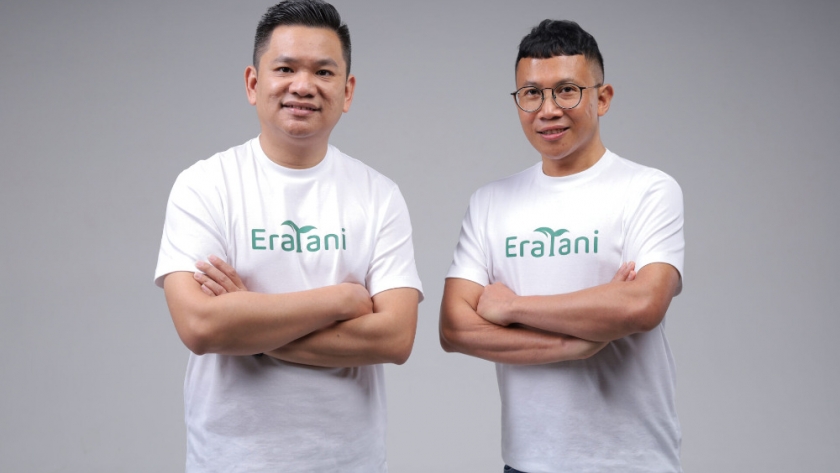
By Agroempresario.com
Indonesia’s rice farming sector just received a major boost with the announcement that ag marketplace startup Eratani has closed a $6.2 million Series A funding round, led by agrifoodtech investor Clay Capital. Other investors participating in the round include SBI Venture, TNB Aura, AgFunder, Genting Ventures, and IIX.
Founded to help smallholder farmers digitize their operations, Eratani aims to transform how rice is grown, sold, and consumed across Indonesia. The new funding will be used to expand the company’s footprint throughout the country, integrate precision-farming technologies, and strengthen partnerships with local actors—laying the groundwork for a more secure and self-sufficient food system.
Indonesia is facing a serious challenge: rising rice demand coupled with a shrinking agricultural workforce. In the 1970s, nearly 70% of Indonesians worked in agriculture. Today, that number has fallen to just 28%. Meanwhile, land availability is shrinking and climate change continues to impact crop yields.
“Technology is no longer a luxury in this context—it’s a necessity,” says Bambang Cahyo Susilo, Eratani’s CFO and COO. However, he emphasizes that tech must be implemented thoughtfully, especially when working with the country’s 28 million smallholder farmers, many of whom still lack smartphones or reliable internet access.
“There are a lot of startups in Southeast Asia trying to push Silicon Valley-style solutions,” says Susilo. “But smallholder farmers will never adopt that kind of technology unless it’s tailored to their reality.”
Eratani’s leadership team, composed of individuals who themselves come from rural, agricultural communities, understands this dynamic. Their solution? A community-driven approach that blends modern tools with traditional farming practices. “If one farmer in a village understands the value, others follow,” Susilo adds. “It’s organic and respectful of local culture.”

Eratani offers an end-to-end platform for rice farmers, helping them manage everything from planting to selling. Their services are broken down into three core components:
EraFarm provides farmers with access to capital, inputs, agronomic guidance, technology, and crop insurance—all crucial for boosting yields and protecting their livelihoods.
EraKios connects with local retailers to ensure that farmers can access reliable agricultural inputs at fair prices, solving a common bottleneck in Southeast Asia’s supply chains.
EraMarket tackles the longstanding issue of market access, buying crops from farmers at competitive, transparent prices.
In 2024, farmers using Eratani’s platform saw a 29% increase in yields and a 25% increase in income. Altogether, the platform supported the production of 112,660 tons of grain and rice last year alone.
Indonesia currently imports about 65% of its food, including significant quantities of rice. The government is now aiming to reverse this trend by 2027. Eratani has pledged its support for this national goal.
“We are fully committed to building the foundation for long-term food security in Indonesia,” says Andrew Soeherman, Eratani’s founder and CEO. “We’re not chasing rapid growth—we’re focused on building resilient, scalable infrastructure in key agricultural districts.”
This strategy includes incorporating data analytics and digital risk frameworks to optimize decision-making and operational efficiency. As Eratani grows, these tools will become critical to ensuring that expansion benefits farmers while preserving ecological and economic sustainability.
Investors see Eratani not just as a tech company, but as a vehicle for systemic change in Indonesian agriculture.
“Eratani is redefining what’s possible for smallholder farmers in Indonesia,” says Gerard Chia, partner at Clay Capital. “Their integrated, farmer-first model doesn’t just improve livelihoods—it creates the infrastructure needed for long-term sustainability and inclusion.”
John Friedman, Asia Director at AgFunder, agrees: “Eratani’s approach—leveraging tech to enhance crop yields, strengthen rural economies, and improve food security—is exactly the kind of innovation we believe is essential for Southeast Asia’s future.”
As digital transformation sweeps through agriculture globally, Eratani offers a powerful model for inclusive, sustainable, and scalable growth. By putting farmers first, the company isn’t just digitizing an industry—it’s cultivating the future of food in one of the world’s most critical rice-producing nations.

